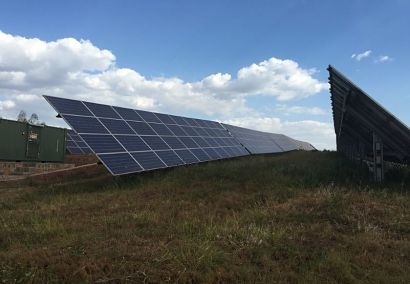
As India begins the significant task of decarbonising its power sector and industrial base, 80 percent of Indian energy production is derived from coal, oil, and biomass. With fossil fuel prices at record highs, driving down renewable energy costs is key to India’s growth concurrent with decarbonisation. Affordable, technologically advanced and reliable solar projects are set to play a crucial role, with the National Institute of Solar Energy estimating over 750 GW of potential solar capacity across the nation, derived from land availability and solar resource calculations.
With a focus on energy-intensive industries such as steel, pharmaceuticals, IT and textiles, SunSource Energy currently has a portfolio of 400MW+ of solar assets supplying Commercial and Industrial clients. In line with current best practices, SunSource Energy conducts extensive on-site measurements to monitor project performance across its portfolio.
Using validated satellite resource data from Solargis, SunSource can confidently verify its own GHI and meteorological data, ensuring accurate inputs during project development and objective evaluations of project performance.
“The Indian solar market works at volume” said Giridaran Srinivasan, CEO – Americas, Solargis. “With a skilled labour force and increasing demand, it is about to enter an exciting new phase of growth. We are proud to work hand in hand with SunSource Energy to support its roll out of high-quality solar resource data, ensuring that it continues to develop projects its customers can trust while helping to spearhead the effective deployment of new technology across the market.”
Adarsh Das, Co-Founder and CEO, SunSource Energy, added that utilising data sets from Solargis has helped the company improve its generation forecasting and project monitoring.
“Solargis’ global offering and wide industry reach means it can advise us on the latest best practices for data, and we have confidence in the expertise and drive of the team, ensuring that our customers benefit from optimised, reliable projects” said Mr Das.
For additional information:

